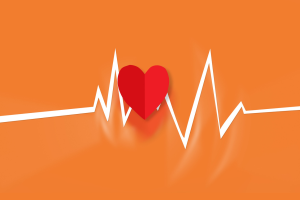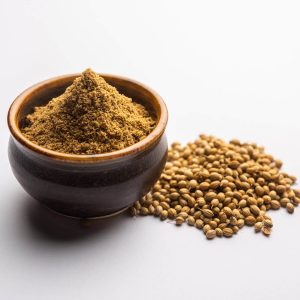5 Tips to Survive Opiate Withdrawal

The human body is no different than a plant, it requires care and nourishment in the form of food, water, and sunlight. When a plant is neglected or does not receive a sufficient level of the nutrition from the sources outlined above, it begins to wither.
Similarly, the human body will lose energy if it doesn’t attain adequate sustenance or medical attention. History has illustrated that mankind has suffered from diseases throughout time. The severity of the sickness depended on the symptoms and the degree of contagiousness. Fortunately, great strides have been made in the field of medicine.
The days of believing that bleeding a patient is the cure are long gone—with innovation in technology, effective treatment programs have been developed to remedy most diseases known to humanity. Not only that, advancements in agricultural methodologies enabled mankind to harvest different herbs and plants and tap into their healing properties.
One such plant was opium and a painkiller was derived from it.
What is Opiate Withdrawal?
The human brain is occupied by a group of protein-coupled receptors called opioid receptors where the term ‘Opiate’ comes from. Opioid receptors are distributed widely in the brain and are also found in the spinal cord and digestive tract. The receptors are responsible for supra-spinal analgesia and consist of an extracellular amino acid N-terminus, seven trans-membrane helical loops, three extracellular loops, three intracellular loops, and an intracellular carboxyl C-terminus.
When these receptors are not functioning properly, they cause both physical and emotional pain. The Opiate drugs are used to mimic the Opioid so that the pain can be numbed, and the receptors operate normally.
Why Does It Cause Withdrawal Symptoms?
As a plant begins to decay without care, the body also starts to feel the adverse effect of diseases when an individual is sick. The only difference is humans can take medication to heal.
Some opiate painkillers are long-term prescriptions while others are over the counter. For those who have been consuming drugs for a longer period of time-their body adapts to the dosage and becomes a normal part of their routine.
Unfortunately, many are unaware that the sudden reduction of drug consumption can have catastrophic effects on the human body. Hence, it’s imperative to approach treatment in an effective yet sensitive manner.
When a person is cut off from their dosage, they experience withdrawal symptoms as the result of the body attempting to function without the drug it’s become accustomed to and trying to get back to normal.
Does Opiate Withdrawal have a Fixed Timeline?
Every individual’s body has a different story to tell and a varied mode of operation. The implication is that each individual will react differently and there is no designated timeline of recovery.
This depends on the case in question, the class of medicines they have been consuming, on their habits, and the way their brain functions. The symptoms can range anywhere from mild to severe, and even extremely debilitating at times.
How to Identify Opiate Withdrawal Symptoms?
The level of intensity of the symptoms varies from patient to patient. This is because it depends on the effects of the withdrawal on the brain. As mentioned, the drug is prescribed as a painkiller and given when consumption stops, the person starts to feel the emotional and physical pain once again.
This is because the brain gets used to the drug. Recovery is harder for someone who has been using it for years on end as compared to consumption for a couple of months.
The symptoms can start within 24 hours or even after 30 hours of withdrawal. These include;
- Muscle soreness
- Irritability
- Trouble sleeping
- Sweating
- Rapid heartbeat
- Lack of appetite
- Cramps
- Nausea
- Shaking/trembling
- Vomiting
- Lingering anxiety
- Craving for opiates
How to Survive Opiate Withdrawal?
There is no need to worry as there are ways to survive opiate withdrawal. How to survive opiate withdrawal? With the right support and strategy, an opiate consumer can fight it and find a way to get his life back on track.
Here are 5 tips to help you survive through the condition;
Substitute Over-the-Counter Medications
Withdrawal is an intense, complex process for patients and this is why some prefer to opt for a substitute. It helps to encounter the symptoms and move past it. Common signs of withdrawal include aches, fever, chills and can be dealt with a dosage of Tylenol or Ibuprofen.
Intake Nutrients
Nausea is another unwelcome side effect that one has to endure. Ensuring your body receives the right source of nutrients will help reduce its severity. When someone undergoes opiate withdrawal symptoms, they tend to eat and drink less. This leads to weakness and nausea. Supplements and nutrients help in coping with an empty stomach and lack of food in the body.
Try Tapering
The tapering technique is quite well known amongst those who have dealt with such a situation before. The patient simply decreases the volume of drug consumption and eventually brings it down to zero. This is a preferred method as it allows the body to adjust slowly.
Join Support Groups
Support groups exist as they are a successful means of maintaining one’s motivation and building strength. In fact, these groups have helped others immensely as sharing experiences offers the opportunity to learn and grow.
Draw an Advance Calendar
It’s always wise to be prepared. To do that, a calendar has proven to be a handy instrument. Getting all important tasks, especially those which are responsibilities before the withdrawal begins is a smart idea. No one should have to deal with extra burdens during such a trying time.
Not to forget, following one’s routine becomes very difficult as the symptoms occur haphazardly. It can happen when you are at work or even at your family’s dinner table. So, take a step back and breathe.
Take baby steps and ease your daily routine to help you meet your objective of survival.






